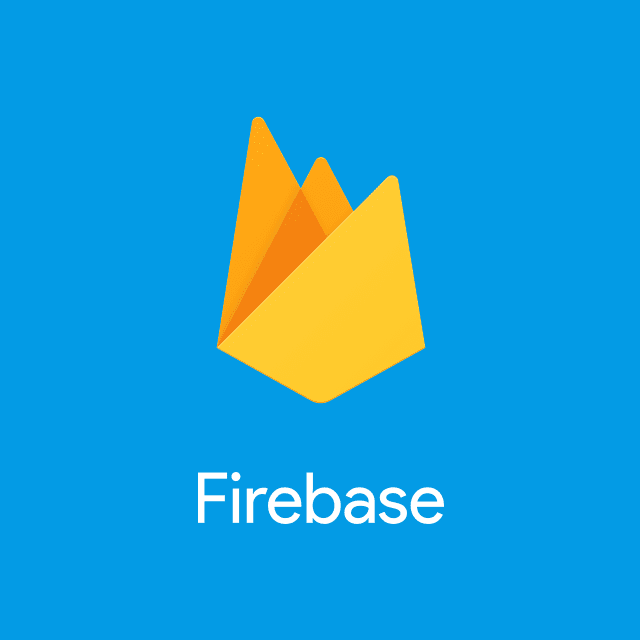Google Cloud Firebase
Building Scalable and Real-time Apps
This series of blogs looks at some of the most popular and commonly used services on the Google Cloud Platform. In this blog, we discuss Google Cloud Firebase.
Additional Reading
For more detailed documentation on “Google Firebase Documentation”, please visit the official Google Cloud website.
For official documentation on “Developers Guide for Firebase”, please visit the official Google Cloud website.
To get a deeper understanding of “Google Cloud Anthos”, please refer to the attached link.
To get more information on “Google Cloud Storage”, please refer to the attached link.
To get more information on “Google Cloud Deployment Manager”, please refer to the attached link.
For more blogs on “Google Services”, please refer to the attached link.
Introduction
In the world of app development, delivering a seamless user experience and maintaining real-time functionality are paramount. Google Cloud Firebase, a comprehensive app development platform, empowers developers to create web and mobile applications that scale effortlessly, synchronize data in real time, and integrate with other Google Cloud services.
Developers need a reliable backend service to support their applications, and that’s where Google Cloud Firebase, a service provided by Google Cloud Platform (GCP), comes into play. Firebase is a powerful cloud-based platform that provides a wide range of tools and services to help developers create high-quality applications quickly and efficiently. Google Cloud Firebase has emerged as a game-changing platform for app developers, offering a wide range of tools and services to simplify the development process and enhance the user experience.
In this blog post, we’ll dive into what Google Cloud Firebase is, its key features, and how it can benefit developers in building and maintaining successful modern applications.
What is Google Cloud Firebase?
Google Cloud Firebase, often referred to simply as Firebase, is a cloud-based mobile and web application development platform. Firebase offers a wide range of features that assist developers in building and managing applications, allowing them to focus on creating delightful user experiences rather than dealing with infrastructure and backend complexities.
Originally created by Firebase Inc., it was acquired by Google in 2014 and since then, Google has expanded Firebase’s capabilities and integrated it with Google Cloud, making it a part of the larger Google Cloud ecosystem. Firebase provides a wide range of tools and services that cover key aspects of app development, including authentication, real-time database, cloud functions, hosting, and more. These services are designed to work seamlessly together, allowing developers to focus on building their applications’ core functionality rather than managing servers and infrastructure.
Key Features of Google Cloud Firebase
1. Real-time Database: Firebase’s real-time database is a NoSQL cloud-hosted database that enables developers to store and sync data in real time across clients. This means that any changes made to the database are instantly reflected on all connected devices. This feature is ideal for applications that require instant updates, such as chat applications, collaborative tools, multiplayer games, or live-score apps. The real-time database uses a JSON data model, making it easy to work with.
2. Authentication: Firebase provides a robust authentication system that supports various authentication methods. It supports various authentication methods, including email and password, social media logins (Google, Facebook, Twitter, etc.), single sign-on (SSO) solutions like OAuth, or custom authentication methods. Firebase also handles password resets, email verification, and account management, freeing up developers from having to build these features from scratch. This simplifies user management and enhances the security of your app.
3. Cloud Firestore: Firestore is Firebase’s next-generation NoSQL document database. It offers a more flexible data model and improved scalability over the real-time database. Firestore is designed to work seamlessly with Firebase and is an excellent choice for apps that require complex querying and structured data. It’s designed for building web and mobile apps that demand high performance and scalability.
4. Cloud Functions: Firebase Cloud Functions allow developers to run serverless code in response to events triggered by changes such as database changes, authentication events, Firebase services, or HTTP requests. This serverless architecture eliminates the need for managing servers and scales automatically and enables developers to focus on writing code that matters. Firebase Cloud Functions lets you run serverless backend code in response to events triggered by changes in your Firebase Realtime Database or Firestore. This enables you to automate tasks, implement serverless logic, and integrate with external services.
5. Hosting: Firebase Hosting offers a reliable and scalable solution for hosting web applications and static content. It provides features like CDN delivery, automatic SSL certificates, automatic scaling, and continuous deployment, making it easy to deploy and manage web apps. Developers can easily deploy web apps, static assets, and dynamic content, all with automatic SSL certificate provisioning and continuous integration support.
6. Cloud Storage: Firebase Cloud Storage provides scalable, secure, and cost-effective cloud storage for user-generated content such as images, videos, and files. It seamlessly integrates with Firebase Authentication and Firebase Security Rules to control access to your storage buckets. Additionally, Firebase Cloud Storage can be integrated seamlessly with other Firebase services for a complete application experience.
7. Performance Monitoring and Analytics: Firebase offers powerful monitoring tools that help you track app performance and user behaviour. Firebase Performance Monitoring lets you track the performance of your app in real time and helps you identify and fix performance issues in your app. Firebase Analytics provides insights into user behaviour and app performance, helping you make data-driven decisions. Firebase Crashlytics helps you track and diagnose app crashes, ensuring a smoother user experience.
8. Machine Learning: Firebase ML Kit simplifies the integration of machine learning into your apps. Developers can leverage machine learning capabilities through ML Kit for Firebase, which offers pre-trained models for various tasks, such as image labelling, text recognition, and language translation. Developers can easily add features like text recognition, image labelling, natural language processing, and face detection without deep machine learning expertise.
9. Security Rules: Firebase’s security rules enable you to define fine-grained access control to your data and resources. You can ensure that only authorized users can read or write data, enhancing the security of your app.
10. Cloud Messaging: Firebase Cloud Messaging (FCM) provides a reliable and efficient way to send push notifications to both Android and iOS devices, ensuring real-time communication with users.
11. Remote Config: Firebase Remote Config enables you to change the behaviour and appearance of your app without publishing updates. You can target specific user segments and A/B test different configurations to optimize user engagement. Firebase Remote Config enables dynamic app configuration changes without requiring an app update, making it easy to personalize app behaviour for different user segments.
Benefits of Using Google Cloud Firebase
1. Rapid Development: Firebase’s intuitive APIs and comprehensive toolset speed up development and reduce the complexity of building real-time applications, reducing time-to-market for new applications. Additionally, Firebase simplifies app development with its easy-to-use SDKs and pre-built backend services, allowing developers to focus on building unique features.
2. Scalability: Firebase can seamlessly scale with your app’s growth. Whether you have a few users or millions, Firebase can handle the load. Firebase scales automatically to handle growing user bases and increased traffic, eliminating the need for manual infrastructure management, and ensuring a consistent user experience even as your user base expands.
3. Real-time Updates: Firebase’s real-time database and Firestore provide seamless real-time data synchronization, which is crucial for applications requiring live updates. The real-time synchronization of data ensures that your users always see the most up-to-date information, fostering a dynamic user experience, and keeping your users engaged and informed.
4. Cross-platform: Firebase supports both web and mobile development, making it an excellent choice for building apps that need to be available on multiple platforms. Firebase supports multiple platforms, including Android, iOS, web, and Unity, making it versatile for various application types.
5. Easy Integration: Firebase integrates seamlessly with other Google Cloud services and third-party tools, providing flexibility in your tech stack, and allowing you to leverage additional features and resources as needed.
6. Cost-Effective: Firebase offers a free tier with generous usage quotas, making it cost-effective for startups and small businesses. You only pay for the resources you use. You only pay for additional usage beyond the free tier. Pricing is also transparent and based on actual usage.
7. Community and Support: Firebase has a vibrant community of developers, comprehensive documentation, and a wealth of tutorials and resources to assist developers at every level. Google provides reliable support and resources to help developers troubleshoot issues.
8. Integration with Google Services: Firebase seamlessly integrates with other Google Cloud services, such as Google Cloud Functions and Google Cloud Storage, enabling you to leverage the full power of Google’s cloud infrastructure and machine learning capabilities, expanding your application’s capabilities.
9. Robust Security: Firebase offers robust security features, including authentication, authorization, and data validation, protecting your app and user data, and ensuring that applications meet modern security standards.
Use Cases for Google Cloud Firebase
1. Social Apps: Firebase’s real-time database and authentication services are perfect for building social networking applications, where real-time interactions and user authentication are crucial.
2. Gaming: Firebase’s real-time features and scalable database make it an excellent choice for multiplayer games and leaderboards.
3. E-commerce: Firebase’s scalability and authentication services are ideal for e-commerce platforms that require user registration, real-time product updates, real-time inventory management, user authentication, and personalized recommendations.
4. Collaborative Tools: Building collaborative tools such as document editors, project management platforms, and team communication apps benefit greatly from Firebase’s real-time capabilities.
5. IoT Applications: Firebase can be used to create IoT applications that require real-time data synchronization between devices and the cloud.
6. Real-time Apps: Chat applications, collaborative tools, and live event tracking benefit from Firebase’s real-time database.
7. Mobile Apps: Firebase simplifies mobile app development with its authentication, cloud storage, and machine learning capabilities.
8. Web Apps: Hosting, authentication, and serverless functions make Firebase an excellent choice for web app development.
Conclusion
Google Cloud Firebase is a powerful and versatile platform that simplifies app development, scales effortlessly and provides real-time functionality. Whether you are building a social networking app, a gaming platform, or an e-commerce site, Firebase offers a comprehensive set of tools to streamline your development process. With Firebase, you can create apps that not only meet but exceed the expectations of your users in terms of real-time experiences and scalability.
In conclusion, Google Cloud Firebase is a powerful platform that empowers developers to build high-quality applications with ease. Its wide range of services, real-time capabilities, and seamless integration with Google Cloud make it a compelling choice for modern app development. Whether you’re creating a small mobile app or a large-scale web application, Firebase provides the tools and infrastructure you need to succeed in the digital age. Embrace Firebase, and unlock the potential to build faster, smarter, and more engaging applications for your users.


